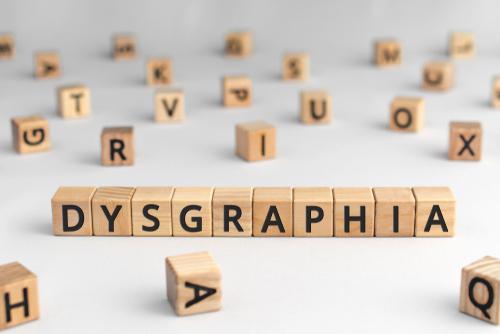Cognitive Development Normal Reading Worksheets for Ages 3-7
10 filtered results
-
From - To
Discover engaging and expertly designed Cognitive Development Normal Reading Worksheets tailored for children ages 3-7. Our worksheets focus on enhancing fundamental skills such as recognition of letters, sounds, and basic words, fostering a strong foundation in early reading. Each activity is thoughtfully crafted to stimulate young minds, encouraging problem-solving, attention to detail, and memory retention. Perfect for parents and educators, these resources support various learning styles and help children progress through essential cognitive milestones, ensuring a joyful and effective learning experience. Start today to give your child an excellent head start on their reading journey!


Rhymes in Poems Worksheet
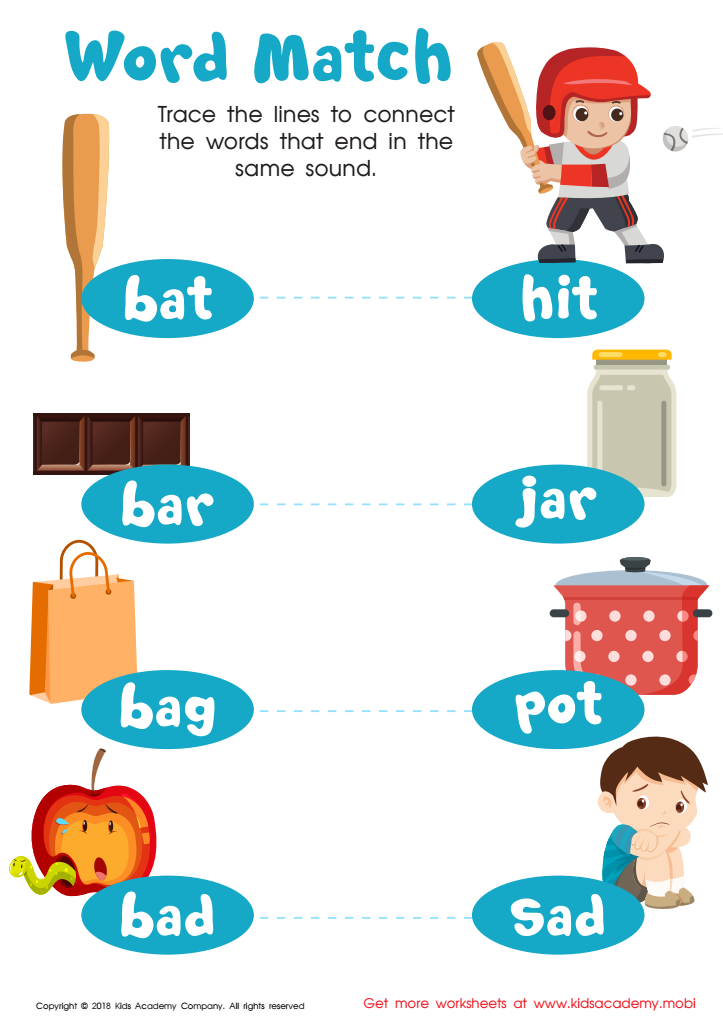

Word Match Reading Worksheet
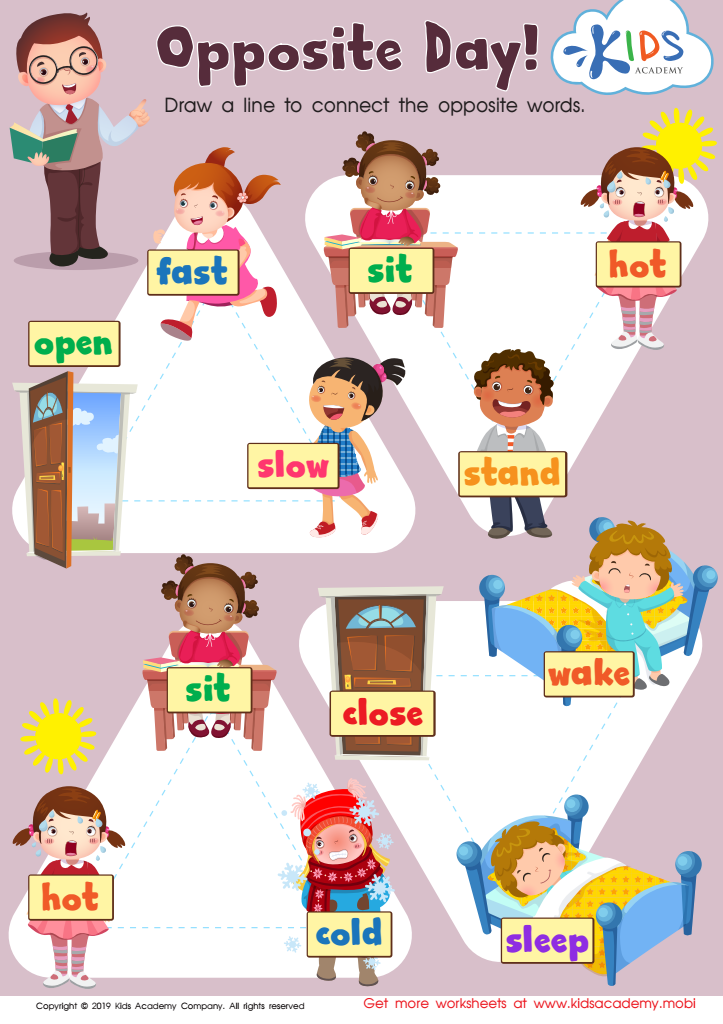

Opposite Day Worksheet
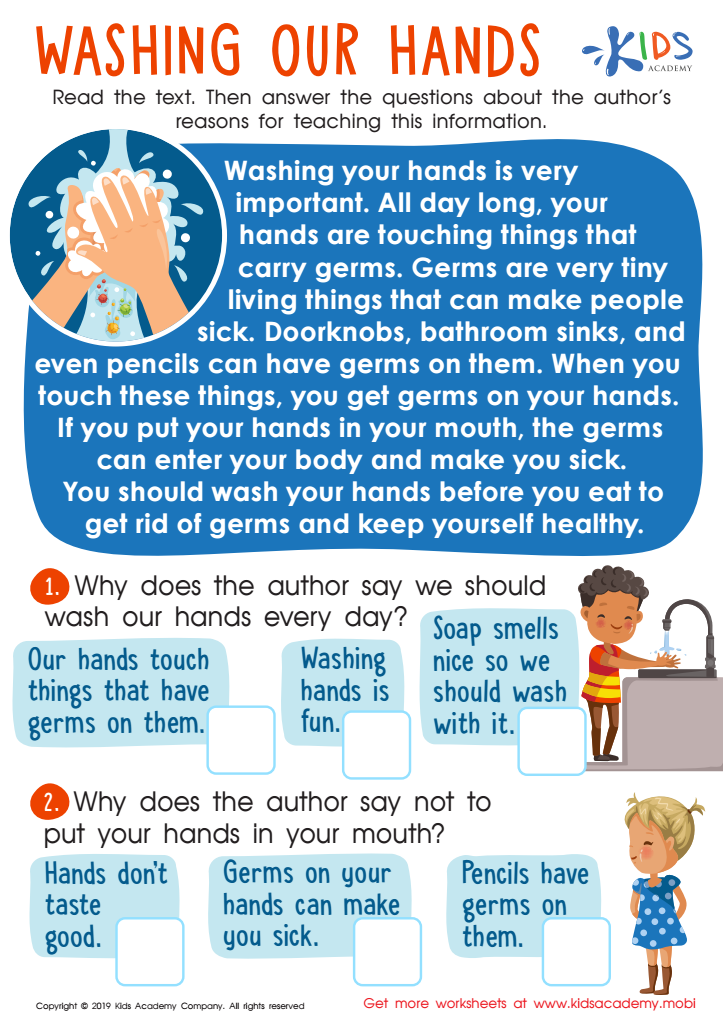

Washing Our Hands Worksheet
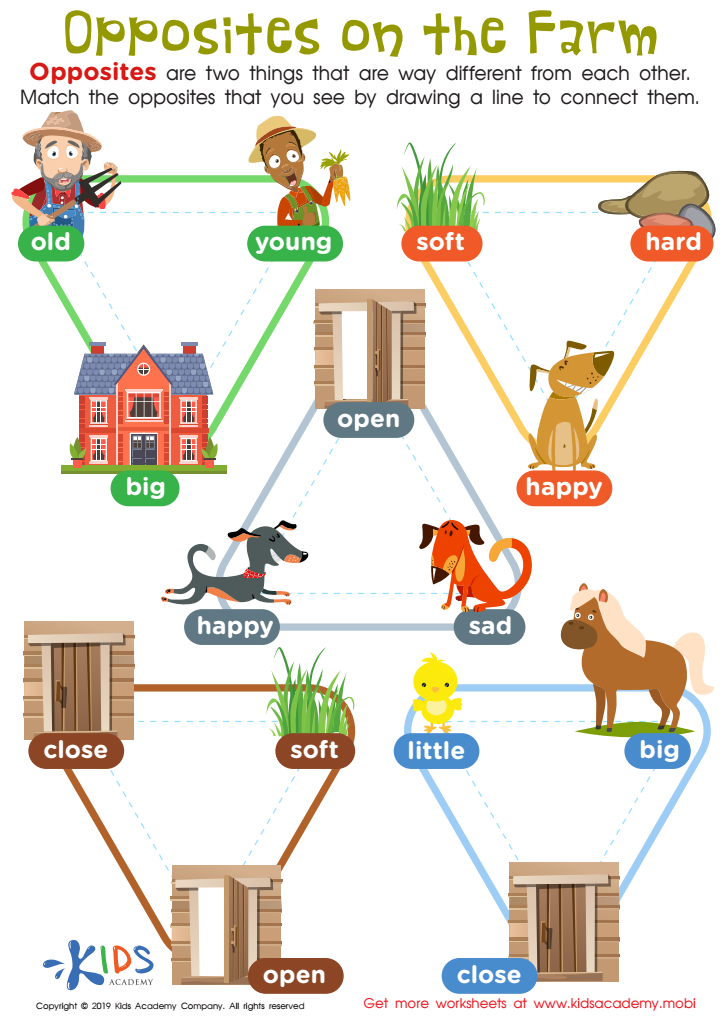

Opposites on the Farm Worksheet
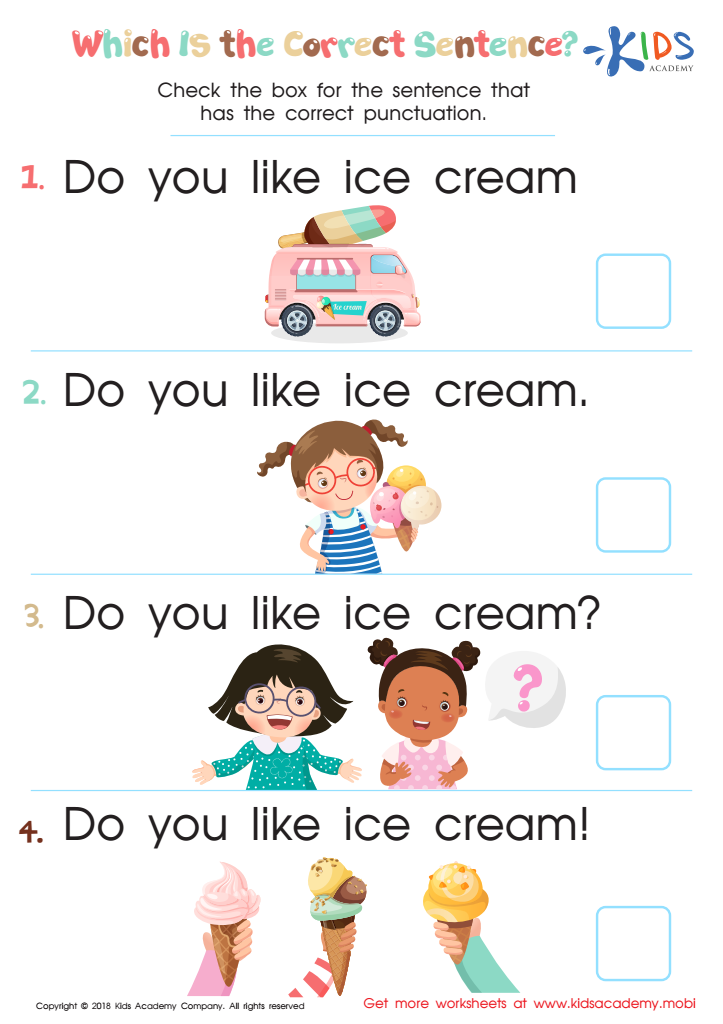

Which is the Correct Sentence? Worksheet
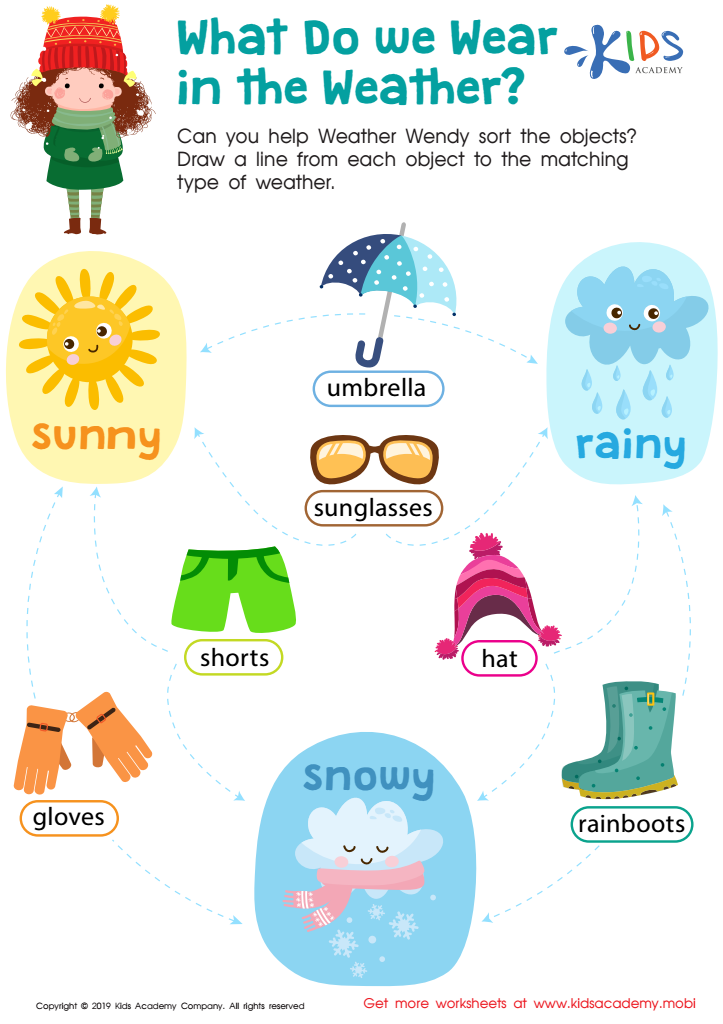

What Do We Wear in the Weather? Worksheet
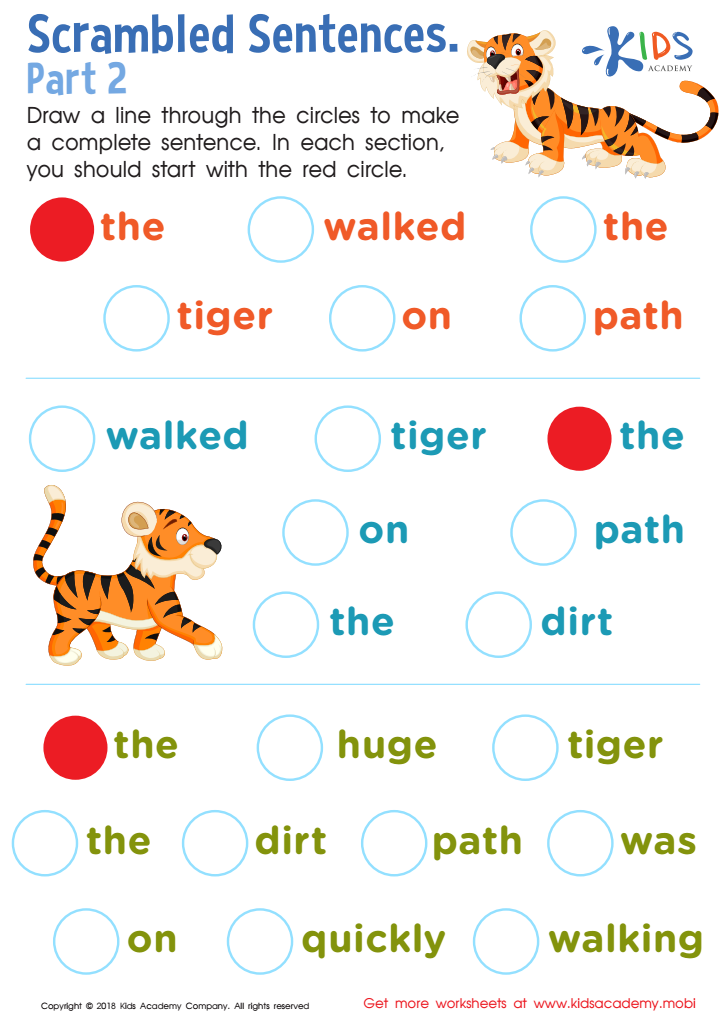

Scrambled Sentences Part 2 Worksheet
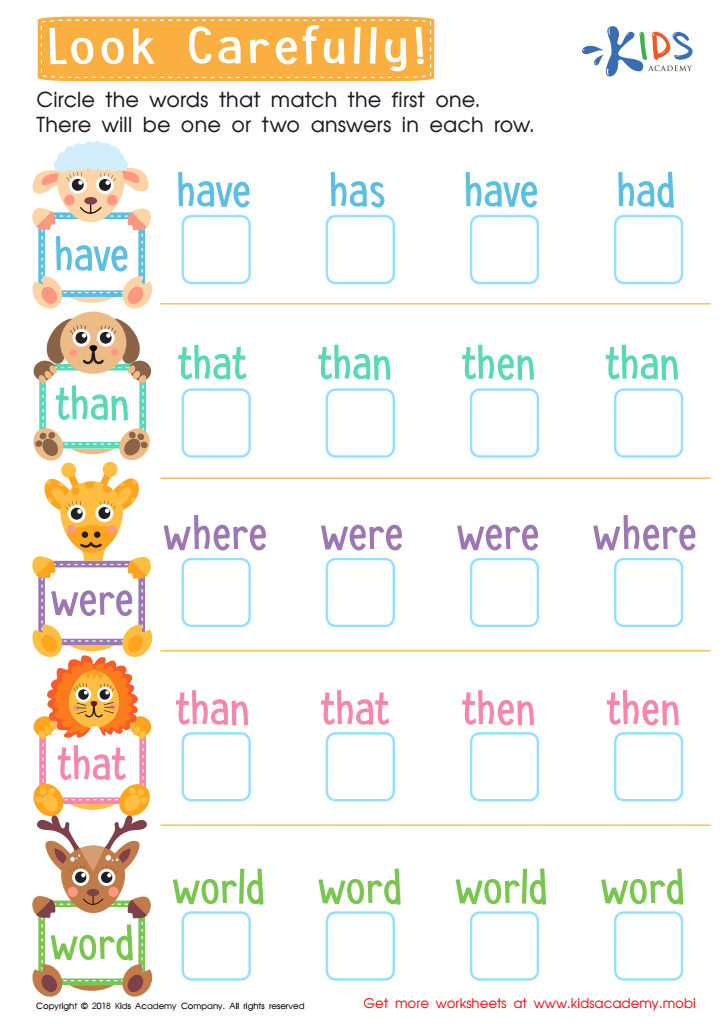

Look Carefully Worksheet
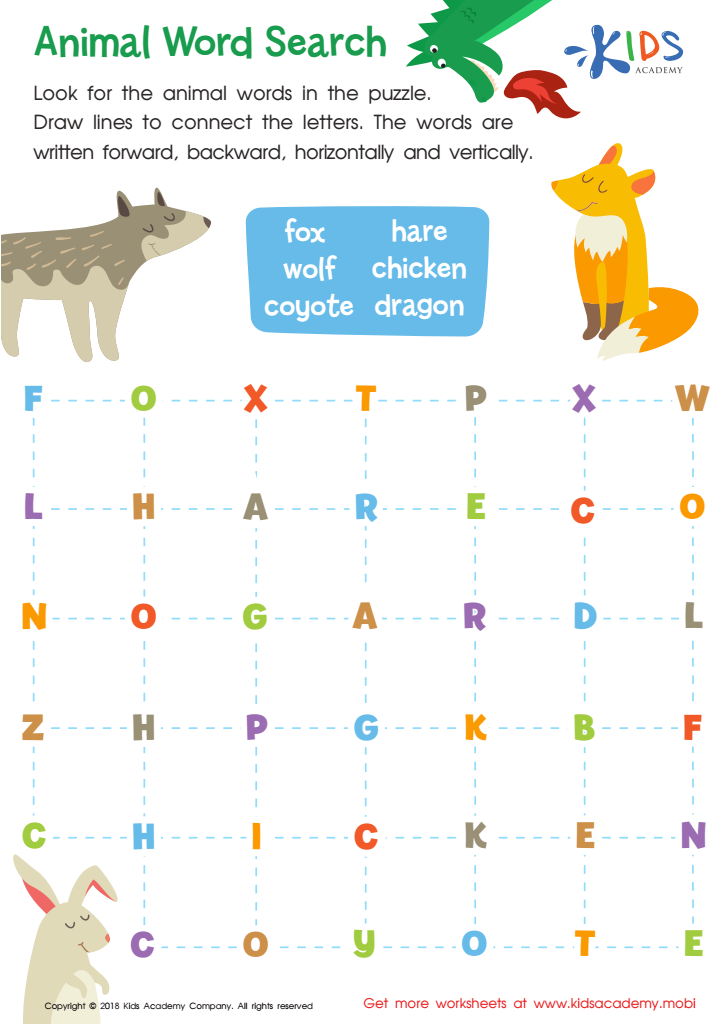

Animal Word Search Worksheet
Cognitive development during the early years of ages 3 to 7 is vital for laying the foundation for lifelong learning and intellectual growth. This period, often characterized by rapid mental progress, directly influences children’s reading abilities and overall academic performance. By fostering cognitive skills such as memory, attention, and problem-solving, parents and teachers help children develop essential abilities for decoding words, comprehending text, and fostering a love for reading.
Parents and teachers play a crucial role in this process by providing enriching environments and engaging activities that promote vocabulary acquisition and narrative understanding. Interactive reading sessions, for example, aid in enhancing language skills and contextual understanding. Early exposure to reading also encourages curiosity and imaginative thinking, which are critical components of cognitive development.
Moreover, a strong early foundation in reading can significantly boost a child’s confidence and motivation to learn. It reduces the risk of future academic struggles, ensuring that children are better prepared to face more complex educational challenges. Therefore, by prioritizing normal cognitive and reading development during the ages of 3 to 7, parents and teachers do more than instill basic reading skills—they nurture a lifelong love for learning and set children on a path toward academic success and personal fulfillment.
 Assign to My Students
Assign to My Students








